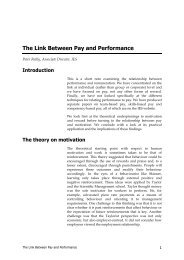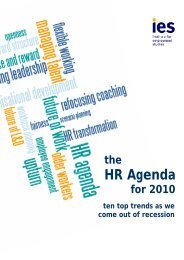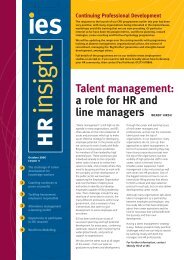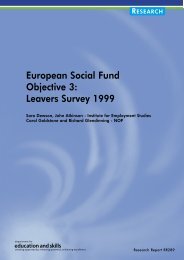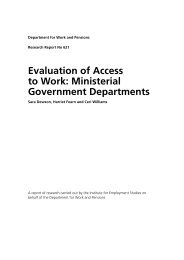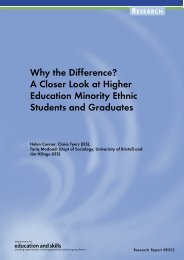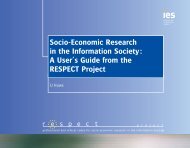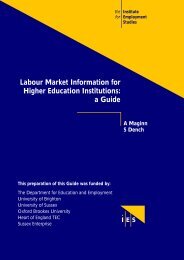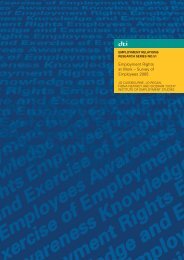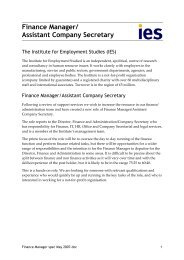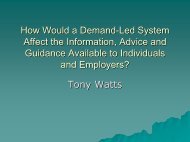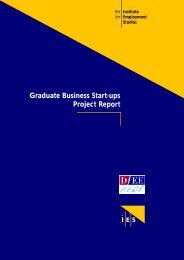Post-16 Transitions: a Longitudinal Study of Young People with ...
Post-16 Transitions: a Longitudinal Study of Young People with ...
Post-16 Transitions: a Longitudinal Study of Young People with ...
You also want an ePaper? Increase the reach of your titles
YUMPU automatically turns print PDFs into web optimized ePapers that Google loves.
Table 6.8: Support provided<br />
• information<br />
• an explanation <strong>of</strong> the options available<br />
N = %<br />
Provided information 451 34<br />
Explained options available 292 22<br />
Helped her/him to progress into further education/training 183 14<br />
Helped in planning support for her/him <strong>16</strong>0 11<br />
Helped her/him in decision making 110 9<br />
Did not help/give support at all 23 2<br />
Offered extra help/support lessons 13 1<br />
Involved parents/held meetings <strong>with</strong> parents 12 1<br />
Kept in contact/kept us updated on progress 10 1<br />
Helped <strong>with</strong> assessment/referrals 6 1<br />
Other 33 3<br />
Don't know/ not stated 9 1<br />
N = 684<br />
Note: All percentages are weighted percentages, unless otherwise stated<br />
Source: IES/MORI 2003<br />
• help to progress the young person into further education<br />
or training, and<br />
• help to plan additional support for the young person.<br />
Parents had broadly similar information and support needs on<br />
education issues regardless <strong>of</strong> whether the young person had<br />
been statemented or not, what type <strong>of</strong> school they had<br />
attended or indeed, the type <strong>of</strong> SEN they presented.<br />
Just over one-fifth <strong>of</strong> parents and carers (21 per cent) had also<br />
sought published information and advice materials regarding<br />
education on behalf <strong>of</strong> the young person. Parents and carers <strong>of</strong><br />
young people <strong>with</strong> sensory and/or physical disabilities were<br />
more likely to have sought out this type <strong>of</strong> information than<br />
parents <strong>of</strong> young people <strong>with</strong> all other special educational<br />
needs. Parents and carers <strong>of</strong> young people <strong>with</strong> behavioural,<br />
emotional or social development needs were the least likely to<br />
have sought additional published material on educational<br />
issues. Parents and carers in higher socio-economic groups<br />
were also much more likely to have sought this sort <strong>of</strong><br />
information than parents in the lower groups. In the main this<br />
information, which was found to be predominantly useful,<br />
had come from:<br />
102<br />
<strong>Post</strong>-<strong>16</strong> <strong>Transitions</strong> <strong>of</strong> <strong>Young</strong> <strong>People</strong> <strong>with</strong> SEN: Wave 2



